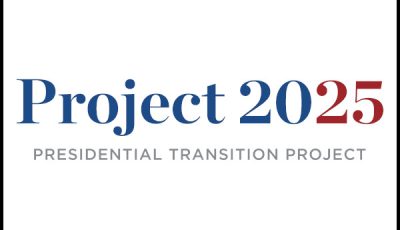Va. Bill Requires Porn Filters On Web-Connected Devices
 RICHMOND, Va. – Virginia is the latest state to contemplate passing a version of the legislation known as the Human Trafficking Prevention Act (HTPA), which has been introduced to the General Assembly there as HB 1592.
RICHMOND, Va. – Virginia is the latest state to contemplate passing a version of the legislation known as the Human Trafficking Prevention Act (HTPA), which has been introduced to the General Assembly there as HB 1592.
As with iterations of the HTPA under consideration in other states, the core of Virginia’s version of the HTPA is a prohibition on the distribution or sale of any product which “makes content accessible on the Internet unless the product possesses an operating digital content blocking capability that renders obscene content, including obscene items, obscene performances, or obscene exhibitions, inaccessible.”
Under the bill, people offering such products for distribution or sale in Virginia “shall make reasonable and ongoing efforts to ensure the proper functioning of the digital content blocking capability and shall ensure that the following content is inaccessible: (i) child pornography as defined in § 18.2-374.1, (ii) any image created or disseminated in violation of § 18.2-386.1 or 18.2-386.2, and (iii) any website that facilitates the commission of an offense set forth in Article 3 (§ 18.2-344 et seq.).”
The sections of Virginia law referenced above cover the creation and dissemination of nonconsensual pornography (more commonly referred to as “revenge porn”) as well as the state’s prohibition of “fornication,” which states that “Any person, not being married, who voluntarily shall have sexual intercourse with any other person, shall be guilty of fornication, punishable as a Class 4 misdemeanor.”
Another aspect of the Virginia bill which is common to all versions of the HTPA previously proposed is the establishment of a fee required if an end-user of a product subject to the law wishes to disable the device’s content filter.
“Any digital blocking capability may be disabled by the person who distributed or sold the product that makes content accessible on the Internet,” the bill stipulates, “if the purchaser or recipient of the product…(r)equests that the digital content blocking capability be disabled; (p)resents photo identification that establishes that the purchaser or recipient is 18 years of age or older; (a)cknowledges in writing receipt of a written warning provided by the person who distributed or sold the product regarding the potential danger of disabling the digital content blocking capability; (p)ays a digital access fee of $20 in accordance with subsection A of § 18.2-391.5; and (p)ays any additional fee charged by the person who distributed or sold the product, if any, which may be retained by such person.”
The bill also includes a mechanism for “unblocking content that is not obscene,” should the device be found to block such content.
“If the digital content blocking capability blocks content that is not obscene and the purchaser or recipient reports such blocked content to the person who distributed or sold the product, the content shall be unblocked within a reasonable time but no later than five business days after the blocked content is reported,” the bill states.
There is another remedy available to users who find their devices over-blocking content, as well: “The purchaser or recipient may seek judicial relief to unblock content that is not obscene.”
Attorney Larry Walters told YNOT there are so many issues with the HTPA, it’s hard to know where to start in pointing them out.
“Requiring distributors to install a filter for allegedly obscene content would result in an unconstitutional chilling effect on the dissemination of sexually-explicit media,” Walters said. “Any such filter would almost certainly block substantial amounts of protected expression, given the difficulty in determining what material some jury might deem to be obscene, under some jurisdiction’s “community standards” (assuming such things exist anymore).”
Walters also took exception to the idea of requiring consumers to petition the court for the ability to view materials they have a constitutional right to privately own and possess – and the transfer of which to a new device would be greatly constrained were such a bill to become law.
“Individuals enjoy the right to possess even obscene materials in their own home, and this proposed bill may infringe that right by imposing unreasonable hurdles in accessing such materials,” Walters said. “The idea that consumers should be forced to file a lawsuit to gain access to erotic fare turns the First Amendment on its head. The government is forced to obtain a court order blocking publication of obscene material. The bill essentially reverses the burden and forces consumers to prove that the material they wish to view is within the realm of protected speech.”













